symposium themes
I. Experimental investigations from very small strains to beyond failure
I.1) Advances in laboratory testing techniques (equipment and procedures).
I.2) Advances in field testing and monitoring techniques.
I.3) Advanced sampling.
I.4) Data interpretation and geotechnical imaging.
I.5) Multiscale problems in geomechanics (micro-to-macro strains).
II. Behaviour, characterization and modelling of various geomaterials and interfaces
II.1) Constitutive modelling of geomaterials.
II.2) Physical and numerical modelling.
II.3) Anisotropy and localisation.
II.4) Time-dependent response.
II.5) Cyclic and dynamic behaviour.
II.6) Soil stabilisation and improvement.
II.7) Thermal behaviour.
II.8) Non-textbook soils: intermediate soils (partially drained, etc).
II.9) Sensitive and liquefiable soils: tailings and other highly brittle strain-softening soils.
II.10) Frozen soils.
II.11) Soil-plant interaction.
III. Practical prediction and interpretation of ground response: field observation and case histories
III.1) Integrated site characterization: derived values to be actually used in design.
III.2) Performance evaluation of geotechnical structures: how to improve our understanding of our "affordable" test methods that typically measure something else (hopefully reasonably related).
III.3) Field monitoring and observational method: new systems for measuring deformations in support of alert-to-alarm criteria.
7th BISHOP LECTURE
7th BISHOP LECTURE
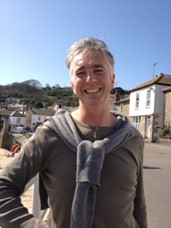
Matthew Coop - University College London, UK
Matthew has about 40 years research experience, concentrating on the behaviour of soils and weak rocks as revealed through high quality laboratory testing. Following industrial experience in offshore foundations and his Doctorate on the behaviour of offshore piles at Oxford University under the supervision of Peter Wroth he was a lecturer/senior lecturer at City University, London before moving to Imperial College in 2000, where he became professor in 2007. In 2010 Matthew moved to the City University of Hong Kong where he established a laboratory specialising in the micro-mechanics of soils returning to London in 2016 to University College. In 2003 he delivered the Géotechnique Lecture. He is the current chair of TC101 of the ISSMGE, for the laboratory testing of soils. He was the founding editor of Géotechnique Letters, the current editor in chief of Géotechnique and is the author of over 110 journal papers which have been awarded ten major research prizes.
Keynote Lectures:
THE ELASTIC PROPERTIES OF THE MARTIAN SOIL AT THE INSIGHT LANDING SITE
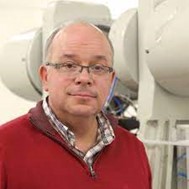
Bernardo Caicedo - Universidad Los Andes, Colombia
Bernardo Caicedo, PhD, is a Full Professor in the Department of Civil and Environmental Engineering, Bogotá, Colombia. His research focuses on the mechanics of partially saturated soils, soil dynamics, the behavior of soft rocks, physical modeling in centrifuges and the behavior of road materials, among others. Bernardo Caicedo has received several awards such as the Camilo Torres Medal of the Universidad del Cauca, the Thomas Telford Prize in 2016 and the Bishop Medal of Research in Geotechnics in 2018; These last two prizes were awarded by the Institution of Civil Engineers, ICE, of the United Kingdom.
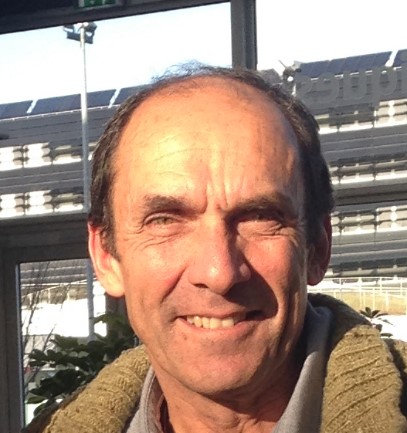
Pierre Delage - Laboratoire Navier – CERMES École des Ponts ParisTech, France
Pierre Delage, Professor of Geotechnical Engineering at Ecole des Ponts ParisTech, graduated as a Civil Engineer from Ecole des Ponts and got a PhD in Engineering Geology from Ecole des Mines, Paris. He actively contributed, since 1983, to the start and development of CERMES (the geotechnical research group of Ecole des Ponts), that he directed from 2003 to 2010. He is member of the French Academy of Agriculture and of the InSight Science Team (InSight is a NASA geophysical mission on Mars). He has been Vice-President of the French Geotechnical Group (CFMS), Chief editor of the Revue Française de Géotechnique and Géotechnique Letters, Panel member of Géotechnique and of various other journals. As former Chair of the Technical Oversight Committee of the ISSMGE (2013 – 2022), he supervised the activities of their 37 Technical Committees. Within ISSMGE, Pierre Delage is now in charge of the Geo-Engineers without Borders group. He developed researches on the fundamental mechanisms governing the response of multi-phase geomaterials submitted to changes in stress, water content and temperature (for sensitive clays, deep marine sediments, unsaturated soils, compacted soils, compacted bentonite, loess, oil reservoir chalks, oil sands, geosynthetic clay liners, shales and Martian regolith), with applications to earth-dams and embankments, deep geological radioactive waste disposal, offshore oil extraction, thermal behaviour of clays and claystones, soil contamination and seismic wave propagation. He co-authored 394 papers and communications in conferences, including 134 papers in journals and 24 invited/keynote lectures. He co-edited 12 special issues of journals or conferences proceedings, including the 1st Int. Conf. on Unsaturated Soils in Paris (1995), the 18th ICSMGE (Paris 2013) and the 3rd European Conference on Unsaturated Soils (Paris 2016), that he chaired.
MICRO TO MACRO INVESTIGATION OF CLAYS AND SOFT ROCKS ADVISING THEIR CONSTITUTIVE MODELLING
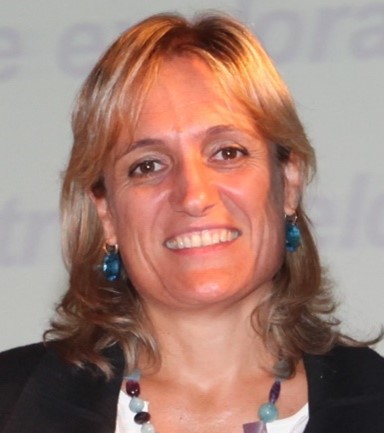
Federica Cotecchia - Politecnico di Bari, Italy
Federica Cotecchia is Full professor in Geotechnical Engineering at the Technical University of Bari (Politecnico di Bari; Italy) since 2012. Her previous academic career included being Delegate of the Rector for the Quality Assessment of Teaching and Research at PoliBA within the evaluation framework issued by the Ministry of University (2013-2019). Since 2008, she is the Scientific Responsible of the Geotechnical Laboratory of PoliBA. In 1997, she was Visiting researcher at City University of London and in 1996-1997 and 1998-1999, at Imperial College of London. She was awarded PhD in Soil Mechanics at Imperial College of London (1996), Master of Science in Soil Mechanics at Imperial College of London (1990) and graduated with honours in Civil Engineering (1988). She has conducted experimental research, in the laboratory and the field, and endeavoured the development of theoretical frameworks of hydro-mechanical behaviour of soils and of geotechnical systems. Her work has conveyed knowledge about the influence of micro to meso structure on the behaviour of clays, under either full or partial saturation, in relation to their geological history, of reference for several elasto-plastic hardening constitutive models. With regard to geotechnical systems, she has mostly developed research about the geo-hydro-mechanical modelling of complex natural deposits, in either mountainous areas, or alluvial planes, the mechanics of slopes and landslides, the effects of geotechnical settlements on either ancient or modern structures, the response of contaminated marine sediment deposits. She has studied the processes generating different landslide mechanisms, implementing advanced soil mechanics in the assessment of landslide hazard at the site scale (work subsidized also by MIUR funding). In a recent ‘Strategic Project', subsidized by European funds (selection on behalf of Apulia Region), under her coordination the research has resulted in a multi-scalar method for the assessment of landslide hazard based upon geo-hydro-mechanical analyses. She is currently doing research heading towards a framework of geo-hydro-mechanical characterization of landslide classes and on landslide risk sustainable mitigation (drainage systems and smart vegetation). She is author of 176 papers, published, after peer review, in international scientific journals, books and proceedings. On March 28th, Scopus quotes for her: 1552 total citations and HI 21. She has been and currently is PI of several national and international research grants. She has successfully tutored so far 12 Philosophy Doctors in Geotechnical Engineering and is currently tutoring 4 PhD students.
MEASURING STRESS, STRAIN AND FORCE TRANSFER IN GRANULAR MATERIALS FROM INTRAGRANULAR TO BULK SCALES
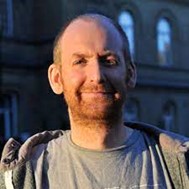
Stephen Hall - Lund University, Sweden
Stephen Hall is Associate Professor at the Department of Solid Mechanics at the Faculty of Engineering (LTH) since 2011 working primarily with experimental mechanics with a strong focus on geo- and granular-materials. Stephen has a degree and PhD in Geophysics (from Leeds University, UK) and, after a Postdoctoral position in 4D seismic imaging at Heriot-Watt University in Edinburgh, he moved to Laboratoire 3SR in Grenoble, France, to work on experimental geomechanics (with a Marie-Curie individual Fellowship). Stephen was subsequently recruited as a "Chargé de Recherche" with the CNRS. After 8.5 years in Grenoble, Stephen moved to Lund to join the Division of Solid Mechanics at the Faculty of Engineering (LTH). He was director of the Lund Institute for Advanced X-ray and Neutron Science (LINXS) through 2018-2021 and has been closely involved in the European Spallation Source and MaxIV synchrotron developments in Lund. Stephen works with a wide range of experimental methods, including extensively with x-rays and neutrons, to investigate deformation mechanisms in materials including the micro-scale origins of deformation and coupled processes. Key tools in his work include full-field measurements (2D and 3D) to characterise deformation mechanisms, x-ray, neutron and ultrasonic tomographies, digital image correlation/analysis and 3D x-ray and neutron diffraction.
RECENT DEVELOPMENTS IN THE EXPERIMENTAL CHARACTERISATION OF FREEZING AND THAWING GROUND
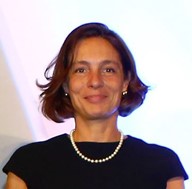
Giulia Viggiani - University of Cambridge, UK
Giulia Viggiani is Professor of Infrastructure Geotechnics in the Department of Engineering of the University of Cambridge. She obtained a Laurea in Civil Engineering from Università di Napoli Federico II in 1989 and a PhD in Geotechnical Engineering from City University, London, UK, in 1994. At Cambridge, she leads the National Research Facility for Infrastructure Sensing and is a member of the Executive Board of the Cambridge Centre for Smart Infrastructure and Construction. She is the current Chair of ISSMGE TC204 'Underground Construction in Soft Ground'. She has been Academic Visitor at Imperial College of Science Technology and Medicine, London, Scientific Visitor at the Max Planck Institute for Mathematics in the Sciences, Leipzig, and Visiting Professor of Geomechanics at the University of Minnesota, Minneapolis. The main thrust of her research is on the applications of soil mechanics to geotechnical engineering, including underground construction, foundation engineering, and earthquake geotechnical engineering. She has carried out original research on tunnelling and construction processes, tunnelling induced damage assessment and connected mitigation and remedial measures, and performance based design of geotechnical structures under seismic actions, using a combination of field monitoring and laboratory observations, theoretical analyses, and physical and numerical modelling. Part of her research is devoted to topics in fundamental soil mechanics, such as the mechanical behaviour of freezing ground and of granular materials with crushable grains. She has experience on the development of novel laboratory equipment and experimental procedures to investigate fundamental aspects of the mechanical behaviour of soils and soft rocks.
SOIL TESTING AT DIFFERENT SCALES: FROM MICRO-EXPERIMENTS TO MOCK-UPS
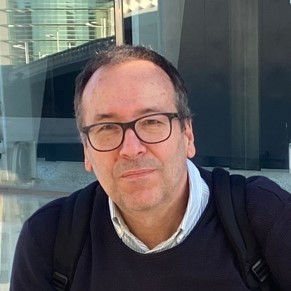
Enrique Romero - Universitat Politècnica de Catalunya - UPC, Spain
Enrique Romero is Full Professor of Geotechnical Engineering and Head of the Geotechnical Laboratory at the Universitat Politècnica de Catalunya (Spain) and Full Research Professor in the Geomechanics Group at the International Centre for Numerical Methods in Engineering (Spain). His research mainly focuses on theoretical and experimental studies of multi-physics and multi-scale processes of geomaterials. His work has been mainly funded through 40+ research projects by different agencies for managing radioactive waste disposal (Belgium, Switzerland, France, Spain, and Japan) over the last 20 years. He is the author of 350+ scientific papers (50+ journal papers dealing with experimental soil mechanics with more than ten citations in Scopus), a member of editorial boards of several international journals, and co-editor of the books 'Advanced Experimental Unsaturated Soil Mechanics' (2005) and 'Laboratory and Field Testing of Unsaturated Soils' (2009). Among recent awards, he has been '2nd European Distinguished Lecturer on Unsaturated Soils' (2020). He co-chaired the '4th European Conference on Unsaturated Soils' held in Lisbon in 2020 and was State-of-the-Art Lecturer on 'Unsaturated Soils' at ICSMGE 2022 in Sydney. He has been elected (January 2022) as chair of TC 106 ISSMGE of Unsaturated Soils.
EMERGING TECHNOLOGIES AND ADVANCED ANALYSES FOR NON-INVASIVE NEAR-SURFACE SITE CHARACTERIZATION
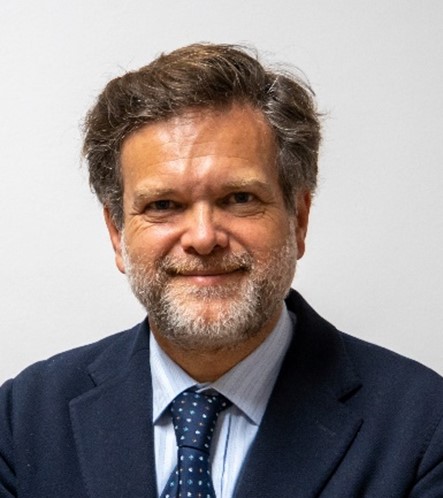
Sebastiano Foti - Politecnico di Torino, Italy
Sebastiano Foti is a Professor in Geotechnical Engineering and Vice-Rector for Education at Politecnico di Torino, where he also received his PhD degree. He has been chair for the Civil Engineering program from 2015 to 2018. He is a member of the Technical Committees TC 203: Earthquakes and a past core member of TC 102: In situ tests of ISSMGE. He has been a member of the Project Team for drafting the new version of Eurocode 7 - Geotechnical design - Part 2: Ground investigation and testing. His research activity is mainly devoted to geophysical methods for geotechnical characterization, with particular reference to surface wave testing, seismic waves in porous media and the use of geophysical techniques in the lab. His other research interests include seismic site response, soil-structure interaction, structural dynamic tests for the assessment of existing foundation systems. He has published over 200 papers in scientific journals and technical conferences, three books and six book chapters. He served in the editorial board of Soils and Foundations from 2015 to 2017. He was awarded the Geotechnical Research Medal (Bishop Medal) 2003 by the Institution of Civil Engineers (UK) for the best paper on geotechnical engineering, an Honorable Mention in the Best Paper category in the Geophysics journal in 2011 by the Society of Exploration Geophysics (USA) and the Outstanding Paper Award from Earthquake Spectra 2018 by the Earthquake Engineering Research Institute (USA).
EMERGING TECHNOLOGIES AND ADVANCED ANALYSES FOR NON-INVASIVE NEAR-SURFACE SITE CHARACTERIZATION
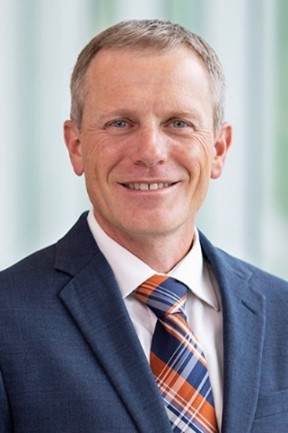
Brady Cox - Utah State University, USA
Dr. Cox is a Professor in the Civil and Environmental Engineering Department at Utah State University (USU). Prior to joining USU, he served on the faculty of The University of Texas for eight years and The University of Arkansas for six years. Dr. Cox specializes in geotechnical engineering, with emphasis on issues related to seismic design and in-situ site characterization for major construction projects. His research efforts combine experimental field testing with computational analyses and high-performance computing for subsurface imaging and multi-dimensional site response analyses. Dr. Cox is a recipient of the prestigious Faculty Early Career Development (CAREER) award from the U.S. National Science Foundation and the Presidential Early Career Award for Scientist and Engineers (PECASE), which he received in a ceremony at the White House from President Barack Obama. He has authored over 100 peer-reviewed publications and has taught eight different courses at the undergraduate and graduate levels at three different universities.
EARLY-CAREER KEYNOTE LECTURES
THERMO-MECHANICAL BEHAVIOUR OF SOILS IN THE FRAMEWORK OF ENERGY GEOSTRUCTURES
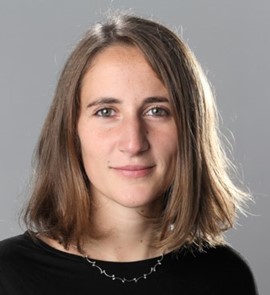
Alice Di Donna - University of Grenoble Alpes, France
Alice Di Donna is Assistant Professor at the University Grenoble-Alpes (France) since 2017. Her main research activities are related to energy geotechnics and thermo-hydro-mechanical couplings in geomaterials, both from experimental and numerical point of view. She obtained her PhD at the EPFL (Lausanne, Switzerland) on the thermo-mechanical behavior of energy piles and was later on involved as a post-doc researcher at the Politecnico di Torino (Italy) in the development of the energy tunnels technology. She co-edited one book on energy geostructures (available in English, French and Chinese) and authored over 25 scientific papers. She holds a patent of an energy tunnel segment, called ENERTUN. She teaches basic and advanced soil mechanics and geotechnical structures. She also worked as structural and geotechnical engineer in civil engineering society based in Torino (Italy).
IN-SITU AND LABORATORY CHARACTERISATION OF STIFF AND DENSE GEOMATERIALS FOR DRIVEN PILE ANALYSIS AND DESIGN
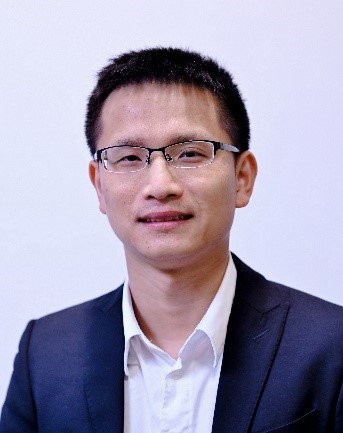
Tingfa Liu - University of Bristol, UK
Dr. Tingfa Liu is a Lecturer in Geotechnical Testing in the University of Bristol, based in the Earthquake and Geotechnical Engineering Research Group (EGERG). He received a MPhil degree from Tsinghua University and PhD from Imperial College London. Before joining the University of Bristol, Tingfa worked as a Post-Doctoral Research Associate at Imperial College London on the EPSRC and industry funded ALPACA and ALPACA Plus projects, investigating the behaviour of axially and laterally loaded piles driven in low- to medium-density chalk through extensive field and laboratory testing campaigns. His PhD was focused on advanced laboratory characterisation of the mechanical behaviour of Cowden till and Dunkirk sand, and the outcomes contributed partly to the Pile Soil Analysis (PISA) joint industry project. Tingfa has co-authored around 20 journal publications and is actively engaged with industry to develop and apply novel instrumentation and geotechnical testing techniques for research into critical offshore and onshore infrastructure.
Theme Lectures:
Javier Camacho-Tauta
Universidad Militar de Nueva Granada, Bogotá, Colombia
THEME II.5
Small-strain stiffness of liquefiable sands: a comparison between bender elements and resonant-column
tests
Antonio Carraro
Imperial College London, UK
THEME I.1
Fabric-Sensitive Soil Mechanics: experimental insights
Reiko Kuwano
University of Tokyo, Japan
THEME I.1
Soil structure evaluation through elastic wave measurement
Alejandro Martinez
University of California Davis, USA
THEME I.1
Understanding the effect of individual particle properties on soil behavior using 3D printed soils
Yukio Nakata
Yamaguchi University, Japan
THEME I.1
New findings for angle of repose test for granular materials using imaging techniques
Jubert Pineda
University of Newcastle, Australia
THEMES I.2 & I.3
Soil sampling: a thermo-hydro-mechanical process often overlooked
Satoshi Nishimura
Hokkaido University, Japan
THEME I.4
Data interpretation and geotechnical imaging
Beatrice Baudet
University College London, UK
THEME I.5
A pore-based approach to understanding the behaviour of clays
Andrea Diambra & Erdin Ibraim
University of Bristol, UK
THEME II.1
Experiments and modelling: an intertwined interaction
Stuart Haigh
University of Cambridge, UK
THEME II.2
Fundamental mechanics of the Atterberg limits
Kenny Kataoka Sørensen
Aarhus University, Denmark
THEME II.3, II.4 & II.8
Anand Puppala
Texas A&M University, USA
THEME II.5
Resilient moduli characterization of chemically treated soils
Rafaela Cardoso
Instituto Superior Técnico, University of Lisbon, Portugal
THEME II.6
Claudia Vitone
Politecnico di Bari, Italy
THEME II.6
When sediments meet shells: a nice geotechnical story to tell
Francesca Casini
University of Rome Tor Vergata, Italy
THEME II.7
An insight into the Thermo-Hydro-Mechanical behavior of frozen soils
SW Jacobz
University of Pretoria, South Africa
THEME II.9
Potential brittle behaviour of tailings slopes from field monitoring and centrifuge modelling
Lucia Mele
University of Napoli Federico II, Italy
THEME II.9
An energetic interpretation of the liquefaction behaviour of saturated and gassy sands
David Reid
University of Western Australia, Australia
THEME II.9
How loose a state can slurry-deposited silt tailings achieve?
Victor Rinaldi
National University of Cordoba, Argentina
THEME III.1 & III.3
Abdullah Ekinci
Adrian Russell
Alejandro Martinez
Alessio Ferrari
Anand J. Puppala
Andrea Diambra
Abdullah Ekinci
Adrian Russell
Alejandro Martinez
Alessio Ferrari
Anand J. Puppala
Andrea Diambra
Short courses & workshops:
Sunday, the 3rd of September will be dedicated to short courses and workshops. If you are interested in proposing a short course or workshop (full day or half a day), please fill in the form.
Short Programme:
Day 0: 3rd September
10.00 - 17.00: Registration
10.00 - 18.00: Short-courses and workshops
10.00 - 17.00: Short-Course 1: Coord. Dr. Xiong Zhang (Prof. Missouri University of Science and Technology)
SIMPLE METHODS TO RAPIDLY CHARACTERIZE AND MODEL UNSATURATED SOIL BEHAVIOR
10.00 - 12.30: Workshop 1: Coord. Dr. Cristiana Ferreira (Assist. Prof. University of Porto - FEUP)
EXPERIMENTAL CHARACTERISATION OF SOIL DAMPING: ADVANCEMENTS AND NEW APPROACHES
14.00 - 18.00: Workshop 2: Coord. Dr. António Viana da Fonseca (Prof. University of Porto - FEUP)
SAMPLING IN SENSITIVE SOILS: ADVANCED PROCEDURES AND QUALITY ASSESSMENT
15.00 - 19.00: Registration
Day 1: 4th September
08.00 - 09.00: Registration
09.00 - 09.20: Plenary Session - Auditorium Opening Ceremony
09.20 - 10.15: Plenary Session - Auditorium Keynote Lecture 1
10.15 - 11.10: Plenary Session - Auditorium Keynote Lecture 2
11.15 - 11.45: Coffee break
11.45 - 13.15: Parallel Sessions (PS) (1h30) Theme Lecture 1, 2, 3
13.15 - 14.15: Lunch
14.15 - 16.30: Parallel Sessions (PS) (2h) Theme Lecture 4, 5, 6
16.30 - 17.00: Coffee break
17.00 - 18.00: Plenary Session - Auditorium 7th Bishop Lecture
19.00 - 20.00: Welcome reception
Day 2: 5th September
09.00 - 09.55: Plenary Session - Auditorium
10.00 - 11.15: Parallel Sessions (PS) (1h15) Theme Lecture 7, 8, 9
11.15 - 11.45: Coffee break
11.45 - 13.15: Parallel Sessions (PS) (1h30)
13.15 - 14.15: Lunch
14.15 - 16.20: Parallel Sessions (PS) (2h) Theme Lecture 10, 11, 12
16.20 - 16.50: Coffee break
16.50 - 17.45: Plenary Session - Auditorium Keynote lecture 4
17.45 - 18.40: Plenary Session - Auditorium Keynote lecture 5
20.00 - 23.00: Gala dinner
Day 3: 6th September
09.00 - 09.55: Plenary Session - Auditorium Keynote lecture 6
10.00 - 11.15: Parallel Sessions (PS) (1h15) Theme Lecture 13, 14, 15
11.15 - 11.45: Coffee break
11.45 - 13.15: Parallel Sessions (PS) (1h30)
13.15 - 14.15: Lunch
14.15 - 16.20: Parallel Sessions (PS) (2h) Theme Lecture 16, 17, 18
16.20 - 16.50: Coffee break
16.50 - 17.45: Plenary Session - Auditorium Keynote lecture 7
17.45 - 18.00: Plenary Session - Auditorium Closing Ceremony
18.00 - 19.00: Farewell drinks





Social Program:
Day 1: 4th September
19:00-20:00 - Welcome reception
Day 2: 5th September
20:00-23:00 - Gala dinner
Day 3: 6th September
18:00-19:00 - Farewell drinks